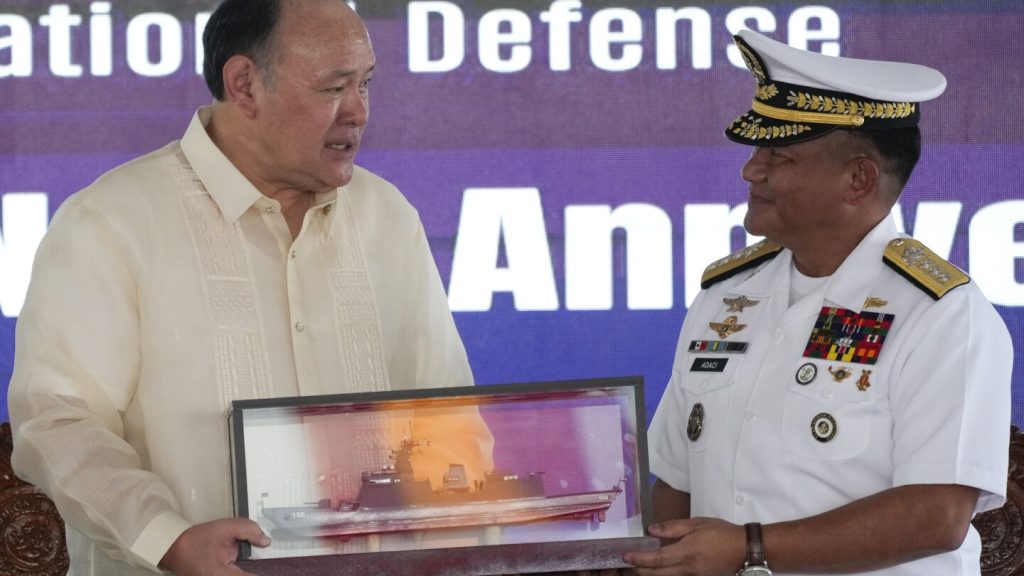The Philippines is determined to defend its territorial interests in the South China Sea by building security alliances and conducting joint combat drills with allies, according to Defense Secretary Gilberto Teodoro. The country has criticized China’s aggressive actions in the region and has taken steps to strengthen security partnerships with Asian and Western countries. The Philippines has allowed a U.S. military presence in more bases under a 2014 defense pact and has conducted annual live-fire exercises with U.S. forces in disputed waters, which China has criticized as provocative.
The Philippines, as the U.S.’s oldest treaty ally in Asia, has defense pacts allowing American and Australian forces to enter the country for combat-readiness and disaster-response training. The Philippines is also negotiating a similar agreement with Japan and considering another pact with France. Joint military maneuvers have been conducted with the U.S., Australian, and Japanese navies in the region, with a focus on territorial defense in the South China Sea. The Philippine military has shifted its focus from domestic anti-insurgency operations to external defense due to concerns over China’s actions in the region.
In their largest military exercises last month, U.S. and Philippine forces staged combat drills focusing on territorial defense in or near the South China Sea. Activities included the retaking of an island, sinking a warship, conducting aerial reconnaissance, logistical transport drills, and securing an airfield during mock combat near Taiwan. Defense Secretary Teodoro emphasized the importance of testing capabilities through realistic training scenarios with like-minded nations, indicating that more maritime cooperative activities are planned.
China’s Defense spokesperson has stated opposition to external interference, muscle-flexing, provocations, and harassment in the South China Sea, asserting that China will resolutely defend its territories. However, Teodoro maintains that Philippine actions to defend its exclusive economic zone are not provocations but necessary duties in line with international agreements. Other countries involved in territorial disputes in the South China Sea include Vietnam, Malaysia, Brunei, and Taiwan. The Philippines’ efforts to strengthen security alliances and conduct joint drills reflect a larger strategy to counter China’s actions in the region.
President Ferdinand Marcos Jr.’s administration has prioritized external defense amid escalating tensions in the South China Sea, aligning with efforts by the U.S. to reinforce alliances in the Indo-Pacific region to counter China. The Philippines remains committed to defending its territorial interests and upholding international agreements in the face of growing pressure from China. The country’s military has adapted to prioritize defense in the region, signaling a shift towards a more proactive approach to safeguarding its sovereignty and security.















